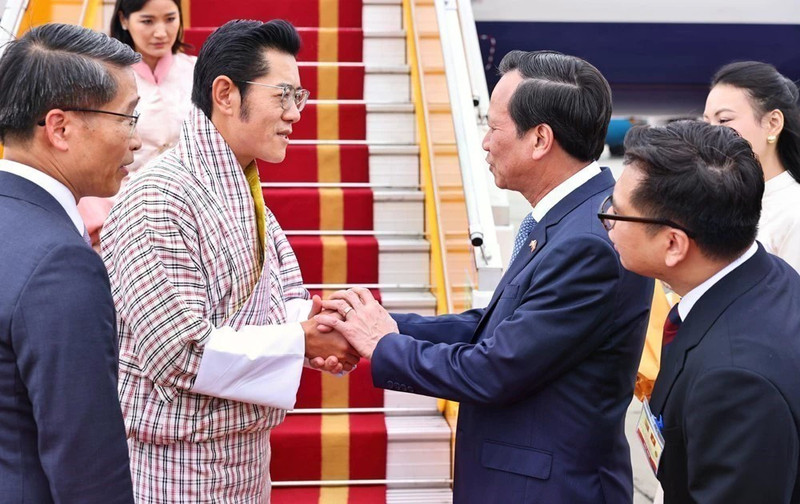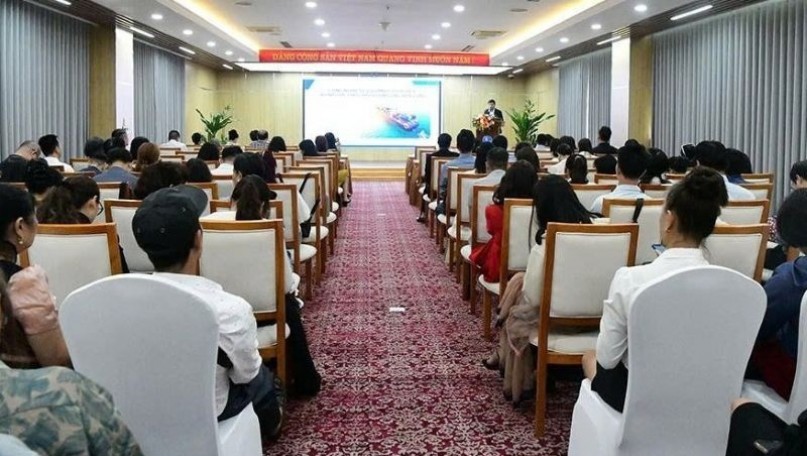This is the first state visit to Viet Nam by the King and Queen of Bhutan since the two countries established diplomatic relations in 2012, marking an important milestone in the friendly and cooperative relations between the two countries; demonstrating Bhutan’s respect for the bilateral relationship, as well as Viet Nam’s role and position in the region.
The visit takes place in the context of the friendly relations between the two countries being on a good development path. Viet Nam and Bhutan share many similarities as Buddhist culture permeates the customs, lifestyles, and sentiments of many people. The two countries are both peace-loving nations and persistently moving towards sustainable development goals.
On January 19, 2012, Viet Nam and Bhutan established diplomatic relations, marking an important milestone in bilateral cooperation. In September 2024, the Bhutanese Ambassador to Thailand, who is also in charge of Viet Nam, presented his credentials to the President for the first time. The two sides are considering establishing a consultation mechanism between the Ministry of Foreign Affairs and signing a number of fundamental agreements such as the Aviation Services Cooperation Agreement and the Memorandum of Understanding on Cooperation between Civil Aviation Authorities.
The two countries coordinate well and support each other at regional and international forums. Bhutan supports Viet Nam’s bid to win a seat on Radio Regulations Board (RRB) of the International Telecommunication Union (ITU) for the 2015-2018 term. Bhutan also supports Viet Nam to become a non-permanent member of the United Nations Security Council (UNSC) for the 2020–2021 term, and the United Nations Human Rights Council for the 2026-2028 term. Meanwhile, Viet Nam has supported Bhutan’s candidate for membership to the UN Committee on the Rights of the Child (UNCRC) for the 2025–2029 term.
Viet Nam and Bhutan have great potential for cooperation, especially when Bhutan is opening up, promoting growth and attracting investment with the Gelephu Mindfulness City Special Economic Zone project. Bhutan encourages Vietnamese enterprises to invest here with many incentives, and at the same time wishes to import agricultural products, garments, food, and electronics from Viet Nam. The two countries also aim to cooperate in religion, especially Buddhism, education, human resource exchange, and promote academic, cultural and people-to-people exchanges.
Tourism, especially spiritual tourism, is a potential area of cooperation between Viet Nam and Bhutan. Located in the Himalayas, Bhutan has majestic landscapes, culture associated with Buddhism and a development model based on the Gross National Happiness (GNH) index as a measure, focusing on environmental protection, preserving traditions, with the world’s only negative emission index. The people value humility, community ethics and harmony with nature, creating a cohesive and trusting society. These values make Bhutan an attractive destination, attracting more and more tourists, including Viet Nam, opening up the foundation to promote tourism cooperation between the two countries.
Welcoming the King of Bhutan Jigme Khesar Namgyel Wangchuck and the Queen on a State visit to Viet Nam aims to continue implementing the foreign policy of independence, self-reliance, multilateralisation, diversification of international relations, and proactive international integration. This is also an affirmation of Viet Nam’s consistent policy of always attaching importance to and wishing to promote relations with countries in the South Asian region, including Bhutan.
Wishing the State visit to Viet Nam by the King and Queen of Bhutan a great success, contributing to deepening and making the Viet Nam-Bhutan relationship more effective, especially in the fields of trade, investment, agriculture, sustainable tourism, religion, etc., thereby strengthening the solidarity and friendship between the two countries.








